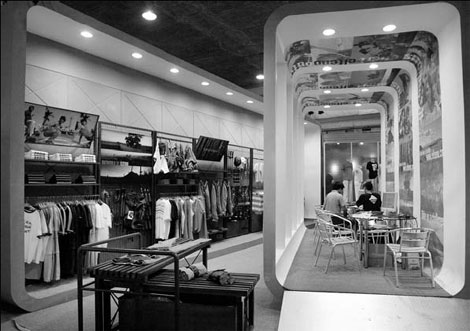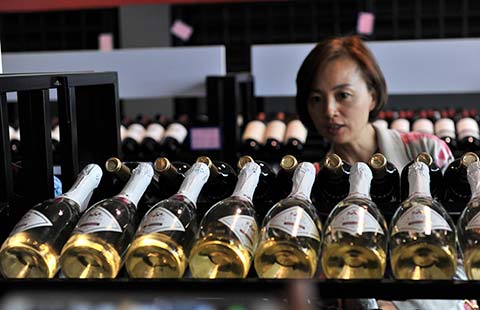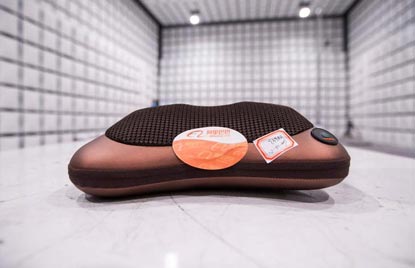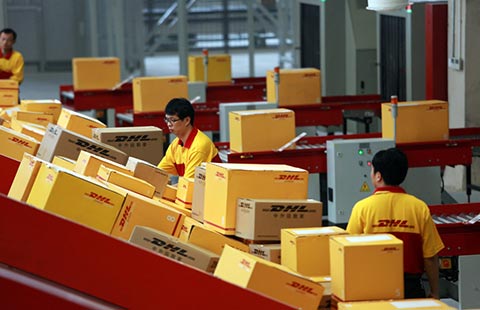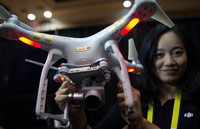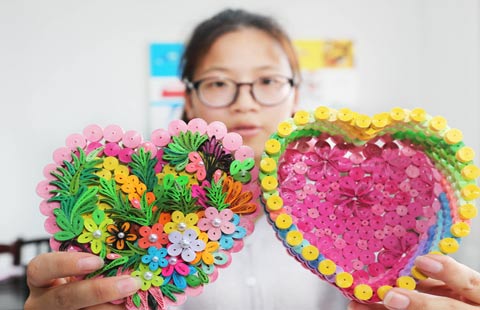Wenzhou merchants see gain on horizon
By Yu Ran (China Daily) Updated: 2011-02-01 07:53
|
An international garment exhibition in Wenzhou, Zhejiang province. A large number of the city's entrepreneurs have entered the overseas market in search of higher returns. Shi Xunfeng / For China Daily |
They turn strong yuan to advantage by making European acquisitions
SHANGHAI - Squeezed by the appreciating yuan and rising wages, factory owners in Wenzhou of Zhejiang province are looking overseas to find higher returns for their fortunes amassed by exporting a range of consumer goods.
In doing so, they are turning the strong domestic currency to their advantage. Wenzhou is so flush with cash that the city government is only too happy to help with the outflow of capital. Wenzhou merchants made quite a few highly publicized European acquisitions to take advantage of the euro's weakness against the renminbi. The euro has depreciated more than 20 percent since the start of the sovereign debt crisis in Greece in October 2009, prompting many European governments to adopt austerity programs that cast a cloud over their respective nation's economic prospects.
The resultant opportunities to buy valuable European assets at attractive prices has not gone unnoticed by the merchants in this entrepreneurial hotbed along the coast in East China. Huang Xiangxun is one such merchant.
In June, his 21-year-son, Huang Hao, in England, made headlines in Zhejiang by acquiring a 45 percent stake of the bespoke furniture maker ES Group of London for 100 million yuan ($15.14 million). ES Group, one of the world leaders in staging arenas, project management, logistics and transportation, with annual sales in excess of $200 million, won contracts for fitting the stadiums of the Sydney and Athens Olympics. It is a reported to be a frontrunner in the bidding for the contracts from the organizing committee of the London Olympics in 2012.
The purchase of ES was made by HEB Group, a company headed by Huang junior. HEB is a London subsidiary of Shanghai-based Haobo Chair, controlled by the 48-year-old Huang senior. The acquisition, when it goes through, will make Haobo the largest single shareholder of the British company. Haobo, one of China's largest manufacturers of sports equipment, had landed a contract worth hundreds of millions of yuan at the 2008 Beijing Olympics.
"The acquisition (of ES Group) will greatly help Haobo to win more deals related to projects for the forthcoming 2012 London Olympic Games," said Huang senior. Huang's latest venture in England was cited by the Wenzhou government as an argument for introducing the ill-fated overseas investment rule, which was said to be aimed at creating a regulated overseas investment channel for individuals, encouraging private investors to take part in international commercial cooperation and liberalizing the city's economy.
"The repeal of the rule won't affect the cooperation between my company and worldwide clients, because most of the joint projects we're involved in are business instead of personal investments," Huang said.
Haobo Chair supplied and installed 6,000 VIP seats at the National Stadium for the Beijing Olympic Games and has won a contract from the London Organizing Committee for the Olympic Games (LOCOG) to supply 20,000 seats for the Aquatics Center built for the 2012 London Olympics.
"The financial crisis hit British companies hard, and LOCOG has a tight budget," Huang senior said. "That's why ES turned to Chinese companies like us with lower manufacturing costs," Huang said.
The company is currently negotiating with LOCOG on other Olympic-related contracts worth more than 2 million pounds ($3.17 million). The equity investment in ES, which is more experienced in management and business strategies in the British market, "can bring us more opportunities from the London Olympic Games," Huang said. "Our target is to achieve business worth more than one billion yuan."
Last year, Huang established Haobo's London subsidiary to specifically target Olympics-related opportunities. "In the next few years, the British government will invest a total of 45 billion pounds toward the rebuilding and expansion of more than 2000 schools, which would be used to expand the market in the UK," Huang said.
Even without the Olympics, Wenzhou's merchants have been targeting European companies for acquisition in recent years. Zhou Jianjun, also of Wenzhou, bought a company in Rome that owns a factory producing garments under a mid-market brand Viseniya.
The 47-year-old Zhou prefers to stay in his native city where he owns a number of factories doing contract manufacturing for several European brands. He makes frequent trips to Rome to oversee his factory there.
Most Chinese-owned garment factories in Rome manufacture under contract for local brands. "I am one of the few exceptions who own their own Italian brands," Zhou said.
That was not part of his plan when he first visited Italy. "I came to Rome initially looking to buy retail shops in the malls to sell the Chinese goods I produced back home," he recalled. He saw a bigger money-making opportunity when he learned that Viseniya was for sale to the highest bidder in 2000. "I just grabbed the opportunity instinctively," he said.
After the acquisition, Zhou resisted the urge to change the company, other than bringing on board several Chinese executives. "I made particular efforts to keep the entire design team intact," he said.
Since then, Zhou has established Viseniya's Chinese headquarters in Shanghai and opened more than seven exclusive outlets in that and other major Chinese cities to sell Viseniya clothing. His company's line of made-in-Italy goods is sold in China at the mid-market price to compete with Chinese-made foreign brands and imports from Japan and Korea.
He says that he plans to begin manufacturing products designed by his Roman team in his factories in China to compete with domestic brands in the lower-price segment of the market. "The acquisition (of Viseniya) has produced many possibilities for me," he says.
The shoe manufacturers of Wenzhou, widely known as the footwear capital of the world, have enthusiastically established their own European links. Zhejiang Aokang, one of the leading leather-shoe-making companies in Wenzhou, bought the right to the Italian shoemaker's Valleverde brand in China in 2008. The partnership includes the establishment of joint research and procurement centers in Italy and China.
"Valleverde is in charge of providing facilities, workers and technical supervisors in our Italian factories, and we run the design teams and procurement departments in China," says Wang Zhentao, Aokang's CEO. Since the acquisition, Aokang has expanded the number of Valleverde stores in China to 200, and it is keen on positioning Valleverde products in the high-end market.
At least two other Wenzhou shoemakers, Kangnai and Taima, have begun talks to acquire Italian brands.
"We are receiving many offers at attractive prices from traditional shoe manufacturers in Italy, and also Spain," Wang said. "It's a buyer's market in corporate Europe," he added.
China Daily
- Chinese stocks down on Brexit fears
- Hong Kong's stocks extend gains to fifth day
- Foreign takeovers in Germany are 'positive'
- BOC's international SME matchmaking on the rise
- Warren Buffett invests in Oklahoma State kin, Tyler Buffett
- People business that goes beyond numbers
- Experts mull impact of UK referendum
- Investors welcome tests next week for Shenzhen-HK trading link
